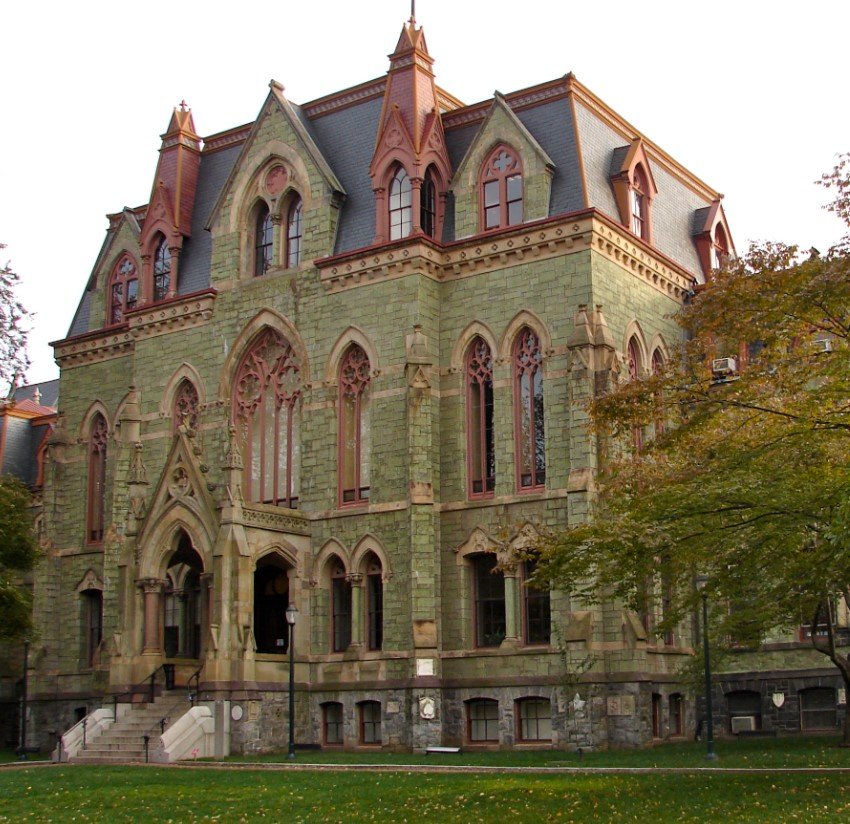The recent escalation of violence between Israel and Hamas has not only caused death and destruction in the Middle East, but also stirred up tensions and controversies at some of the most prestigious universities in the United States. Several Ivy League schools, such as the University of Pennsylvania and Harvard, have faced accusations of antisemitism and lost long-time donors amid the ongoing conflict.
UPenn under fire for hosting anti-Israel speakers and ignoring Hamas attacks
The University of Pennsylvania (UPenn) has been criticized by some of its alumni and board members for hosting a Palestine Writes Literature Festival last month, which featured speakers with a history of making antisemitic remarks. The festival was co-sponsored by UPenn’s Middle East Center, which receives federal funding under Title VI of the Higher Education Act.
Some of the speakers included:
- Omar Barghouti, a co-founder of the Boycott, Divestment and Sanctions (BDS) movement, which seeks to isolate Israel economically and culturally. Barghouti has called for the end of Israel as a Jewish state and compared it to Nazi Germany.
- Susan Abulhawa, a Palestinian-American novelist, who has accused Israel of ethnic cleansing, apartheid and genocide. Abulhawa has also defended Hamas as a legitimate resistance movement and praised its leader Ismail Haniyeh as a “man of God”.
- Marc Lamont Hill, a professor at Temple University and a former CNN commentator, who was fired in 2018 for endorsing a “free Palestine from the river to the sea”, a slogan often used by Hamas and other groups that deny Israel’s right to exist.
The festival sparked outrage among some UPenn donors and board members, who accused the university of promoting antisemitism and failing to condemn Hamas’s attacks on Israel. Jon Huntsman, a former US ambassador and a long-time donor, announced that he would stop giving money to UPenn, saying that “silence is antisemitism, and antisemitism is hate”. Vahan Gureghian, a charter school leader and a board member, resigned in protest, saying that UPenn had “embraced antisemitism” and “failed to advocate for justice”.
UPenn’s president Amy Gutmann issued an apology for not denouncing the speakers more quickly, saying that the university did not endorse or support their views. However, she also defended the festival as an exercise of academic freedom and free speech.

Harvard loses two major donors over hostile environment for Israeli students
Harvard University has also faced backlash from some of its donors over its handling of the Israel-Hamas conflict and its treatment of Israeli students. Two prominent foundations have cut ties with Harvard since Hamas launched rockets at Israel in May.
One of them is the Wexner Foundation, founded by Leslie Wexner, the former CEO of Victoria’s Secret. The foundation has supported Israeli fellows at Harvard for more than three decades, providing scholarships and leadership training. In a letter to Harvard’s Board of Overseers, the foundation said that Israeli fellows had felt “increasingly marginalized” on campus due to the rise of anti-Israel sentiment and activism. The foundation also expressed disappointment with Harvard’s response to the Hamas attacks, saying that it was “too little, too late”.
The other donor that severed relations with Harvard is Robert Kraft, the owner of the New England Patriots. Kraft has donated more than $100 million to Harvard over the years, including $20 million for the establishment of the Kraft Family Stadium in Jerusalem. Kraft said that he was “deeply troubled” by Harvard’s lack of support for Israel and its Jewish community. He also accused Harvard of allowing antisemitism to flourish on campus, citing incidents such as swastikas being drawn on dorms and professors being harassed for their pro-Israel views.
Harvard’s president Lawrence Bacow defended the university’s stance on the Israel-Hamas conflict, saying that it was “balanced” and “principled”. He also said that Harvard was committed to fostering a respectful and inclusive environment for all students, regardless of their background or beliefs.
Antisemitism on the rise at other US colleges
UPenn and Harvard are not the only US colleges that have faced allegations of antisemitism in relation to the Israel-Hamas conflict. According to a new survey by StopAntisemitism.org, a watchdog group that monitors antisemitic incidents on campuses, antisemitism reached an all-time high at US universities in May 2021.
The survey recorded 178 incidents of antisemitism across 105 colleges in 28 states during May 2021. This represents a 300% increase from April 2021 and a 500% increase from May 2020. Some of the incidents included:
- Physical assaults on Jewish students
- Vandalism of Jewish property
- Threats and harassment of Jewish faculty
- Disruption of pro-Israel events
- Promotion of anti-Israel propaganda and conspiracy theories
- Adoption of BDS resolutions by student governments
The survey also ranked the top 10 most antisemitic colleges in the US, based on the number and severity of incidents. The list included:
- University of Bristol
- University of Warwick
- University College London
- University of Birmingham
- Columbia University
- New York University
- University of California, Los Angeles
- University of California, Berkeley
- University of Michigan
- Rutgers University
The survey called on the US government and academic institutions to take action to combat antisemitism on campuses and protect Jewish students from discrimination and violence.
